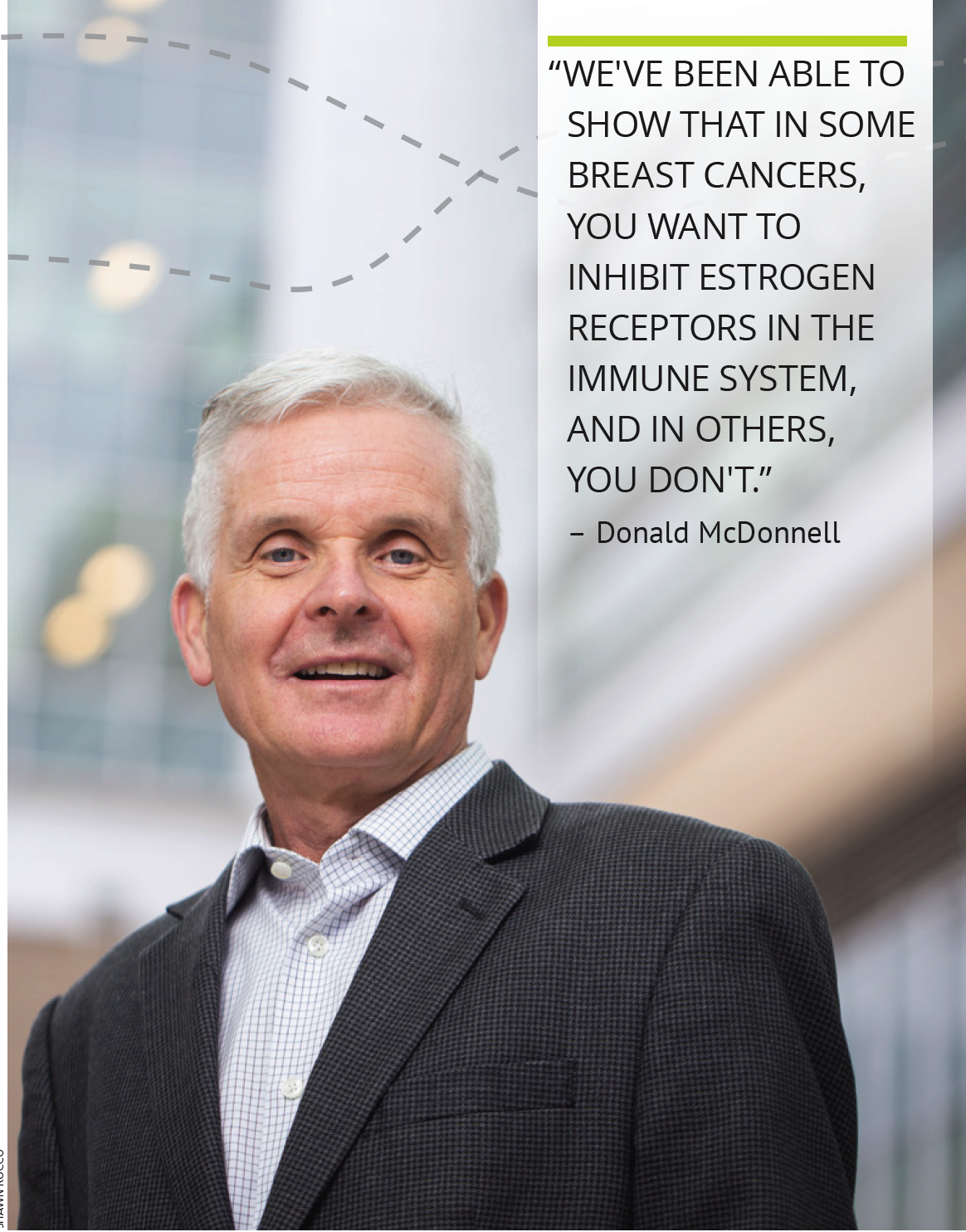After a scientific meeting in New Hampshire in 2017, breast cancer researcher Donald McDonnell, PhD, met his wife, Mary, in Maine for a week of vacation. Sitting at a secluded inn on Anne’s Point, McDonnell, Co-leader of the Women’s Cancer Research Program at the Duke Cancer Institute, couldn’t stop thinking about what he had heard at the meeting.
He couldn't shake the thought that he and everyone else had been taking the same general approach to treating estrogen-receptor-positive breast cancer for more than 30 years.
What many breast cancer drugs have in common is that they stop production of the hormone estrogen or block its effects. Over the years, researchers have gotten better and better at developing anti-estrogen drugs, which interfere with the estrogen receptor in the cancer cell. Some bind to the estrogen receptor in place of the hormone, while others bind and "twist the receptor into an unnatural shape," McDonnell says. "The cell thinks it's a broken protein, then eats it.”
McDonnell’s own lab has had a role in the development of the majority of these drugs (see “A Bench-to-Bedside Story). That is no small feat: for many patients, the treatments hold the cancer at bay. In fact, in 2020, McDonnell was recognized with the Susan G. Komen Brinker Award for Scientific Distinction in Basic Science, the organization's highest scientific honor, for his contributions to improving understanding of estrogen receptor signaling, leading to development of novel endocrine therapies for breast cancer that is positive for the estrogen receptor.
But sitting there in Maine in 2017, looking at the calm water, McDonnell decided that he could do better.
“I decided that I had to get off the path I was on,” McDonnell says. "My group has done as good a job as we could possibly do developing drugs to stop the growth of breast tumors. What I want to do now is eradicate them."
That decision has led McDonnell, the Glaxo-Wellcome Professor of Molecular Cancer Biology, to shift from “studying the breast cancer cell in a vacuum” to looking at therapies in the context of the immune system. Early findings from his team of collaborators show promise for finding treatments that are more targeted and effective than ever before.







